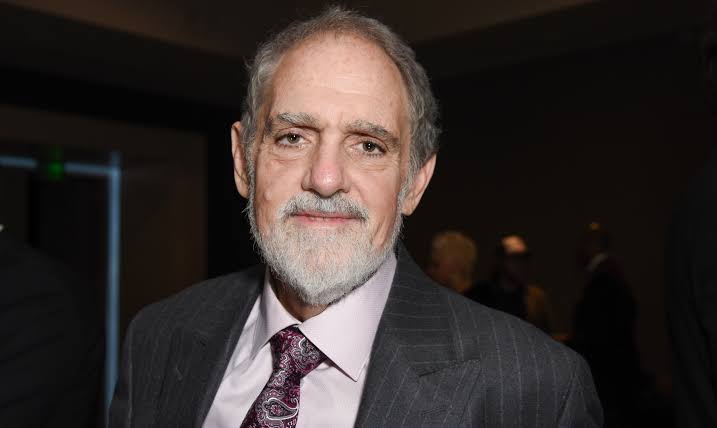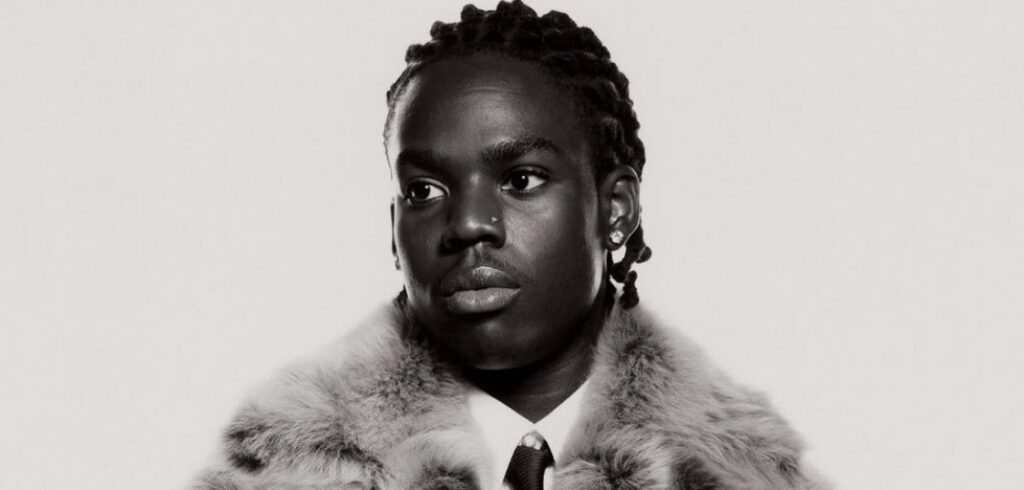
Miwa Olorunfemi has seamlessly stepped up from being a TV/Radio presenter to a burgeoning actress. Putting behind initial family concerns and her reserved personality, Miwa is speeding in the right direction in her acting career. As a passionate mental health advocate and perfumer, she shares insights with KINGSLEY JEREMIAH on her transformative journey, delving into the challenges within Nigeria’s creative industry as she offers perspectives on how the entertainment sector can boost the country’s Gross Domestic Product and employment opportunities.
Radio/TV presentation and Acting/Skit making are wall apart! How did you manage to navigate the two fields seemlessly?
The transition from radio and TV to acting and skit making was never really a stark change for me. Even during my time in radio and TV, I had a creative itch for acting. I would create skit videos and post them on my social media platforms.
Surprisingly, I started getting invitations for auditions, even though initially, I didn’t envision myself as a professional actor. I want to clarify that I still consider myself a presenter, and that part of me is something I love deeply. In fact, I intend to return to it in the future.
My journey in the film industry began with ‘Journey of the S’ in 2018, produced and directed by Hafeez Adeyemi. This project was particularly close to my heart because it delved into my humanitarian side. It revolved around the struggles of a sickle cell patient, with the director drawing from his own experiences as a sickle cell patient.
I also had the opportunity to be part of ‘MERRY MEN 1&2’ produced by AY Makun. However, I played extra roles in that film. Additionally, I appeared in ‘Halita’, an African Magic series during its second season.
One of my significant roles was in the very recent high school movie – ‘Treasure in The Sky’ (showing on Uchenna Mbunabo TV on YouTube) where I played a weirdo character, Kamsi. That movie recently became the talk of the nation for being an emotional overdose, while amassing over 13 million views in just about a week. Also, I played in ‘Farin Jini’, where I acted the lead role. It’s an ongoing northern story, spanning six seasons, and it airs on Rok 2 and Iroko TV.
Moreover, I’ve also ventured into film production, creating two YouTube movies: ‘Love Me Again’ with Chris Okagbue and ‘New Haven’ with Majid Micheal. These two productions are personally meaningful to me and by God’s grace, in this new year, there will be many more beautiful stories to come.
What, in your experience, is the most fascinating aspect of the entertainment industry in Nigeria?
The most captivating aspect of the Nigerian entertainment industry, from my perspective, is the boundless opportunity it offers. Regardless of your background or where you come from, as long as you possess talent and determination, you can rise to the top. Social media has been a game-changer, providing a platform to showcase our creative talents. What’s equally inspiring is the potential for growth within the industry and even international recognition. You can start small and make significant strides.
How do you see the business side of the Nigerian entertainment industry contributing to the country’s Gross Domestic Product (GDP)?
As an entrepreneur and movie producer, I believe our industry has a significant role to play in boosting the country’s GDP. Firstly, we have the ability to tell compelling stories that resonate not only with Nigerians but also with people across Africa and beyond the shores of our continent. These stories have the power to capture international audiences, effectively contributing to exports.
Furthermore, the digital age has made content distribution easier. By packaging high-quality movies and sharing them on platforms like Netflix,YouTube, Amazon Prime, we can generate substantial revenue. The numbers aren’t just statistics; they translate into tangible income.
Additionally, our industry has the potential to attract tourists. Some foreigners are drawn to Nigeria due to their fascination with the displays showcased in our films. They come to experience our culture, food, and way of life, which, in turn, boosts the local economy.
Nigeria faces significant unemployment challenges, particularly among young people. Do you believe the creative industry can provide opportunities to address this issue?
Absolutely. The creative industry serves as a robust job hub. With the prevalence of social media, many young people have a platform to showcase their talents without the need for connections. Beyond the opportunities the industry inherently offers, it’s crucial to recognize that we live in a world where individuals can create their own opportunities. It’s about putting yourself out there and seizing the chances that come your way.
Additionally, I advocate for the transformation of auditions into paying gigs.
Could you share your experience in playing a character who is half human and half demon, and how you prepared for such a role?
Playing a character who is part human and part demon was a unique and challenging experience. When I was first offered the role, I knew it would test my acting abilities in unprecedented ways. The character had a dual nature, where she would transition between being calm and happy to becoming destructive, angry, and violently possessed by a demon. It was a rollercoaster of emotions that required significant preparation.
I faced anxiety and sleepless nights, especially since it was my first lead role in such a complex character. To cope, I turned to spiritual practices like fasting and prayer to find peace of mind. This allowed me to connect with the character on a deeper level and tap into the spiritual aspects of the role.
Additionally, I conducted extensive research to understand the concept of the ‘demon’ in various cultures and belief systems. I studied the behaviours and characteristics associated with such entities to bring authenticity to my portrayal. Rehearsals were intense, involving physical and emotional exercises to help me get into character and, importantly, get out of it when the shoot was done. It was a demanding role, but it was also incredibly rewarding to see the character come to life on screen in a way that resonated with the audience.
You used to be quite reserved before pursuing acting. Were there any concerns or confrontations with your family when you decided to step into the entertainment industry?
Before venturing into the entertainment industry, I was indeed a reserved individual, and I came from a background with strong religious values. Naturally, I had concerns about how my decision to pursue acting might be perceived by my family. However, I must say that my family, particularly my exceptional parents and adorable siblings, have been remarkably supportive throughout my journey.
While they may have had their initial concerns, as parents often do when their children embark on unconventional paths, they recognized my passion and dedication to the craft. They’ve witnessed my growth and the positive impact my work has had, and this has strengthened their support.
Ultimately, their unwavering encouragement has been a source of motivation for me. It’s a testament to the fact that pursuing one’s dreams and passions, even if they diverge from traditional expectations, can lead to fulfilling and successful outcomes with the support of loved ones.
Where do you see yourself in the coming years, and how do you plan to navigate through all that you do?
In the coming years, my focus is on growth and continuous improvement. I aim to tell better stories on more diversified platforms. It’s all about expanding my horizons and taking each aspect of my career to new heights. I’m an ambitious person but not a desperate one. I believe in progressing steadily and working towards it every day.
Do you believe there are specific actions the government can take to improve the creative entertainment industry?
Absolutely, the government can play a pivotal role in enhancing the creative entertainment industry. One area where their support is crucial is in providing a conducive environment for filmmakers. For instance, when shooting in locations like Lagos, there are often issues with ‘area boys’ that can harass production crews, making the process less efficient and safe. The government could establish regulatory bodies to oversee such matters, supporting filmmakers and streamlining the process.
Moreover, the industry lacks a proper structure, and regularization of certain aspects is necessary. Filmmakers currently have to navigate various challenges independently. Having government support in terms of infrastructure, funding, and regulation would be a significant boost to the industry.
Is it true that filmmakers like you don’t pay taxes?
While I do pay taxes for certain aspects of my business, like censorship and other business-related taxes, it’s true that there are exemptions in some cases for the film industry. However, it’s important to note that this isn’t unique to filmmaking. There are several industries where specific tax regulations apply, and the film industry is no exception.
What are the primary challenges you see for your growth, particularly as an upcoming actress?
As an up-and-coming actress, one of the biggest challenges is breaking through and getting producers to take a chance on your talent. Often, producers prefer established faces for marketing purposes, which is understandable. However, they should also consider that audiences enjoy seeing fresh faces and talent.
Another challenge is fair compensation. Up-and-coming actors are sometimes paid less than their ‘worth’, but it is usually only for a while as growth is inevitable where hardwork and dedication is the bedrock. It’s crucial for newcomers not to accept offers that undervalue their skills and to keep pushing for what they deserve. Persistence and tenacity are vital in overcoming these challenges and making a mark in the industry.













